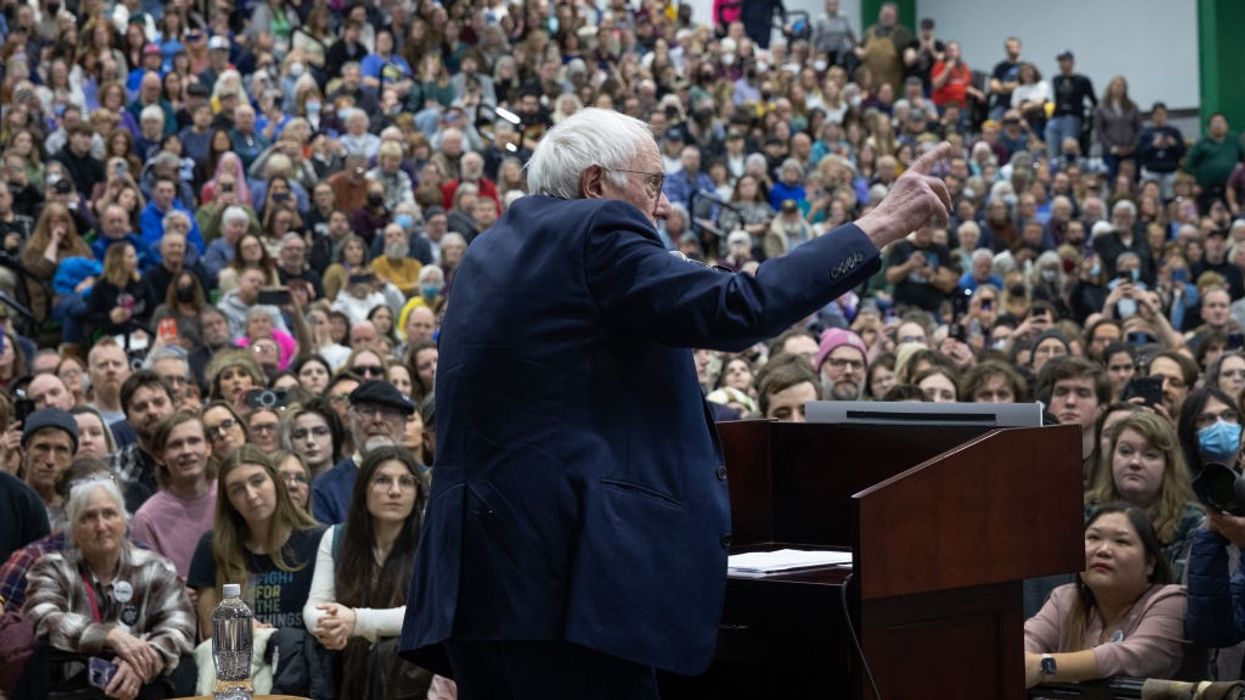Sanders Gets GOP Leader to Agree to Work On Medicare Covering Dental, Hearing, and Vision
The exchange on the Senate floor came after the Finance Committee chair blocked passage of the Vermont Independent's bill.
U.S. Senate Finance Committee Chair Mike Crapo on Tuesday blocked passage of Sen. Bernie Sanders' legislation to expand Medicare to cover dental, hearing, and vision care for tens of millions of American seniors, but the bill's sponsor got the panel leader to publicly agree to further discuss the issue.
Sanders (I-Vt.) took to the Senate floor Tuesday afternoon to ask for unanimous consent to pass the Medicare Dental, Hearing, and Vision Expansion Act, which is spearheaded in the House of Representatives by Congressman Lloyd Doggett (D-Texas).
"In the richest country in the history of the world, it is unacceptable that millions of seniors are unable to read because they can't afford eyeglasses, can't have conversations with their grandchildren because they can't afford hearing aids, and have trouble eating because they can't afford dentures," Sanders said in a statement.
"That should not be happening in the United States of America in the year 2025," he continued. "The time is long overdue for Congress to expand Medicare to include comprehensive coverage for the dental, vision, and hearing care that our seniors desperately need."
After Crapo (R-Idaho) rose to stop the bill from advancing, he and Sanders had a brief exchange in which the Republican agreed to working on achieving the "outcome" of the federal healthcare program covering dental, vision, and hearing.
In Sanders' remarks on the Senate floor about his bill, he sounded the alarm about efforts by President Donald Trump, billionaire Elon Musk, and congressional Republicans to cut government healthcare programs and Social Security.
"Yeah, we have more nuclear weapons than any other country, we have more billionaires than any other country, but we also have one of the highest rates of senior poverty of any country on Earth. We might want to get our priorities right," said Sanders, who has long fought for achieving universal healthcare in the United States via his Medicare for All legislation.
"While my Republican colleagues would like to make massive cuts to Medicaid in order to provide more tax breaks to billionaires, some of us have a better idea," he said. "We think that it makes more sense to substantially improve the lives of our nation's seniors by expanding Medicare to cover dental, vision, and hearing benefits."
To pay for his expansion plan, Sanders calls for ensuring that Medicare pays no more for prescription drugs than the Department of Veterans Affairs and addressing the tens of billions of dollars that privately administered Medicare Advantage plans overcharge the federal government annually.
In a statement about the bill, Doggett highlighted that "this expanded care could help prevent cognitive impairment and dementia, worsened chronic disease, and imbalance leading to falls with deadly consequences. This is an essential step to fulfilling the original promise of Medicare—to assure dignity and health for all."
Welcoming their renewed push for Medicare expansion, Public Citizen healthcare advocate Eagan Kemp declared that "at the same time Trump and his cronies in Congress try to rip healthcare away from millions and push for further privatization of Medicare, Sen. Sanders and Rep. Doggett are showing what one of our top priorities in healthcare should be—improving traditional Medicare."
"The introduction of this legislation is an important step to ensure Medicare enrollees can access the care they need, and we hope that Congress will act quickly to pass these commonsense reforms," Kemp added. "Healthcare is a human right."
Earlier Tuesday, in anticipation of Crapo's committee holding a confirmation hearing for Dr. Mehmet Oz, the former television host Trump has nominated to lead the Centers for Medicare and Medicaid, Public Citizen released a research brief about the hundreds of millions of dollars Medicare Advantage companies have spent on lobbying.
"If Oz is confirmed as the CMS administrator," Kemp warned, "attacks on traditional Medicare are likely to move into overdrive."


